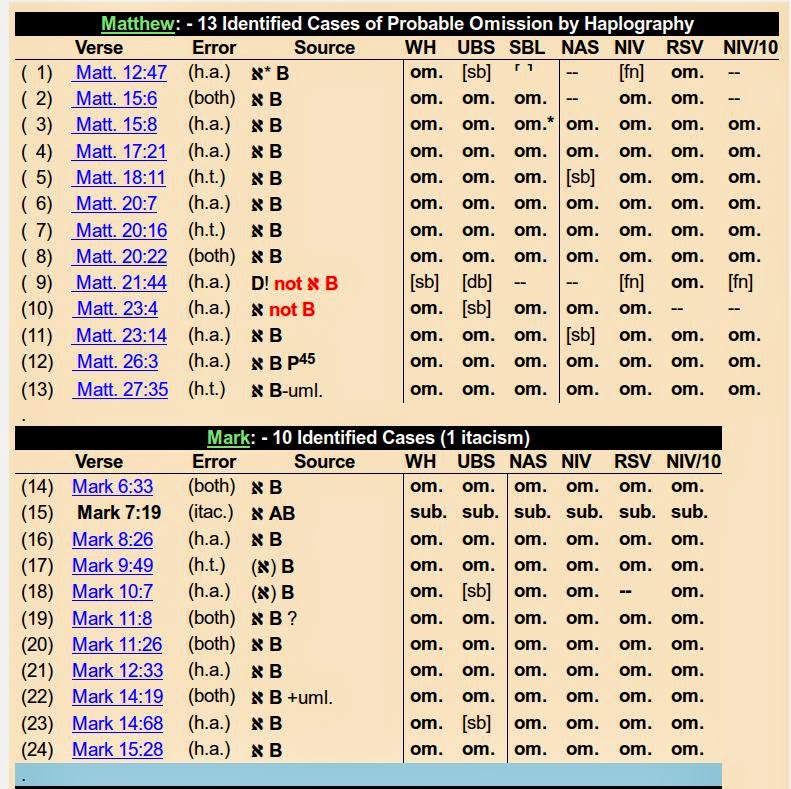The problem here is obviously not the simple change from “saith” to “say”, as Daniel astutely brought to light in his post #18. The problem is renderings dictate diction, the choice of words, as opposed to broader themes dictating diction. Here is a comparison of two verses in Genesis from The Complete Jewish Bible, Catholic Bible, New King James Version, and King James Version. Following are some respective renderings impacted by translation, mine included:
The Complete Jewish Bible:
23 Now Lemech said to his wives, Adah and Zillah, hearken to my voice; wives of Lemech, incline your ears to my words, for I have slain a man by wounding (him) and a child by bruising (him). 24 If Cain shall be avenged sevenfold, then for Lemech it shall be seventy seven fold.
http://www.chabad.org/library/bible_cdo/aid/8168/jewish/Chapter-4.htm
Catholic Bible
23 Lamech said to his wives: Adah and Zillah, hear my voice; wives of Lamech, listen to my utterance: I have killed a man for wounding me, a young man for bruising me. 24 If Cain is avenged seven times, then Lamech seventy-seven times.
Http://www.usccb.org/bible/genesis/4
New King James Version:
23 Then Lamech said to his wives: “Adah and Zillah, hear my voice; Wives of Lamech, listen to my speech! For I have killed a man for wounding me, Even a young man for hurting me. 24 If Cain shall be avenged sevenfold, then Lamech seventy-sevenfold.”
http://www.blueletterbible.org/search/search.cfm?t=NKJV&Criteria="Lamech"#s=s_primary_0_1
King James Version:
23 And Lamech said unto his wives, Adah and Zillah, Hear my voice; ye wives of Lamech, Hearken unto my speech: for I have slain a man to my wounding, and a young man to my hurt. 24 If Cain shall be avenged sevenfold, truly Lamech seventy and sevenfold.
http://www.blueletterbible.org/search/search.cfm?t=KJV&Criteria="Lamech"#s=s_primary_0_1
Now, lets take a look at various renderings from said translations…
Jewish rendering(s):
http://www.chabad.org/parshah/article_cdo/aid/577241/jewish/Aliyah-Summary.htm
http://www.chabad.org/library/article_cdo/aid/246607/jewish/Adams-Children.htm
Catholic rendering(s):
http://www.studylight.org/commentaries/hcc/view.cgi?bk=0&ch=4
Various and sundry Protestant renderings:
http://biblehub.com/genesis/4-23.htm
We can substantially agree “saith” translates as “says,” but where we go from there becomes rather tangential. Dictionaries do NOT dictate themes… themes dictate diction, the choice of words, while divine inspiration dictates themes. Translations are inspired by one’s theme, while other translations are inspired by their themes. Hence: one’s theme, of greater and lesser inspiration, dictates diction/translation. The simple question arises: Whose theme is more divinely inspired than another’s? How does one justify their theme, BEFORE justifying one’s diction/translation?
My rendering:
The renderings of Genesis 4:23 KJV and Genesis 4:24 KJV are rather simple to my fallable rendering of the KJV translation, which I proffer is the most benign translation affording greatest individually inspired latitude. Cain’s punishment, already merciful, was no procreation (Genesis 4:12 KJV) achieved by Cain being a “fugitive and a vagabond in the earth” (Genesis 4:13 KJV). Therefore, Cain would NOT mix and mingle and die of old age being a fatherless fugitive and vagabond. Cain begged for mercy (Genesis 4:14 KJV) that someone would still find him and kill him, even though God mercifully didn’t. God set a mark upon Cain that he wouldn’t be found out and killed. Consequently, Cain received parole to mix and mingle among folk which opened the door to procreation that God forbade (Genesis 4:12 KJV). If Cain broke parole and sired children, then Cain’s lifespan would be limited to “sevenfold” generations. Cain sired Enoch, and built a city (Genesis 4:17 KJV) contrary to God’s parole (Genesis 4:12 KJV => Genesis 4:15 KJV).
Counting from Satan is generation #1, Cain generation #2, Enoch #3, Irad #4, Methujael #5, Mehusael #6… Lamech is the “sevenfold” generation from Satan, inclusively (Genesis 3:15 KJV, Genesis 4:16, 17). Lamech extended the mark of Cain for a total of “seventy and sevenfold” generations by executing Cain for violating parole (Genesis 4:17 KJV), not for the premeditated murder of Abel. Consequent to carrying out God’s sentence executing his beloved and relatively young great-grandfather (Genesis 4:23 KJV) (Genesis 5:8 KJV), Lamech extended the preservation of Cain’s lineage via the mark for a total of “seventy and sevenfold” generations. Lamech even named a son Tubalcain, which I proffer is in memoriam to Cain (Genesis 4:22 KJV). Furthermore, this opens up the issue of the flood, did Cain’s descendants survive the flood? If so, how?
Thereby, Lamech prophesied the “seventy and sevenfold” arrival generation of God’s Son who could ‘see’ through the veil without condemnation (John 8:15, 16, KJV, John 8:26 KJV), divinely discerning who were Cain’s descendants (John 8:44 KJV, John 8:47 KJV). Go to Luke 3:38 KJV and begin counting generations with God is generation #1, Adam generation #2, Seth #3, and so forth… Jesus is the “seventy and sevenfold” generation from Almighty God, inclusively.
I venture to say that few translations outside the KJV preserve sufficient individual spiritual latitude to grasp the greater themes of God’s Holy Word. I consider other translations and renderings, but the KJV leaves the floor open, so to speak, for the Holy Spirit to speak to INDIVIDUALS. To each their own!
kayaker




